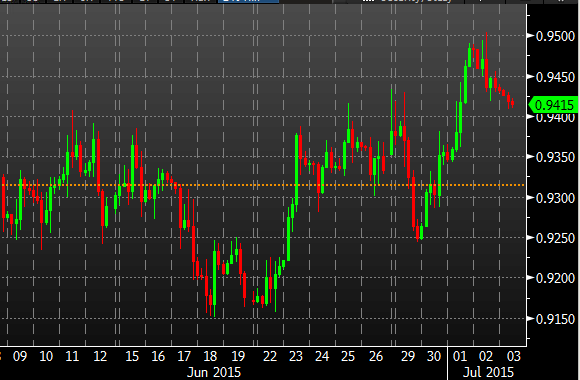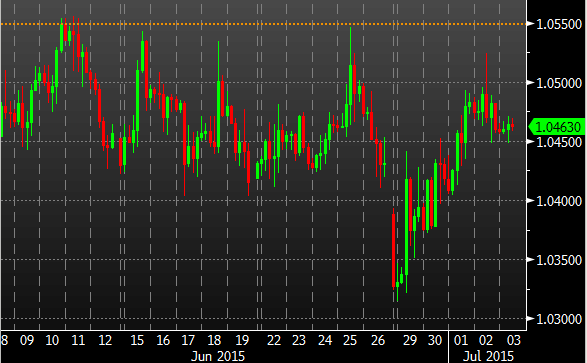Much talk again recently from the SNB about being ready to intervene in the fx markets to prevent further appreciation of CHF, but balance sheet concerns remain as forex reserves grow
Last Monday saw SNB head Thomas Jordan admit to having intervened in Asian and European markets after the euro wobble caused further EURCHF weakness. This confirmation was the first since that infamous day in Jan
And this week there's been good evidence of further action/smoothing with both USDCHF and EURCHF finding good demand to post highs of 0.9504 and 1.0525 respectively as I reported here.

USDCHF has seen a steady rise from 0.9250 and EURCHF 1.0315 but now we're back to 0.9410 and 1.0458 with little sign of any SNB support so far. I reckon they will be keeping their powder dry until the outcome of the Greek referendum is known but we can expect them to be ready to act should save-haven CHF buying be the order of the day

But with all this intervention, notable since late June (amount unknown), we will see a rise in forex reserves which in turn leads to a increased balance sheet, a major concern of Jordan's when they removed the EURCHF floor on Jan 15
SNB fx reserves totalled $548 bln in May within 1% of the record level posted in March, far higher than when Jordan & Co removed the 1.2000 cap. That figure is about 80% of Switzerland's GDP and a figure that the SNB have already described as unstable
The central bank is between a big rock and a very hard place and has been for a long time now with safe-haven flows dominating the price action, something that I have highlighted on many previous occasions
So if they can't keep adding to the reserves through intervention will they be forced to cut interest rates further? We certainly can't rule that out but previous cuts have proved less than effective
So expect plenty of rhetoric still from the SNB and yes they will have to keep putting a bid under CHF pairs but they're running out of ammunition.
They will be hoping for a Greek deal but that won't be the end of the problem as global, as well as Eurozone uncertainties continue.



